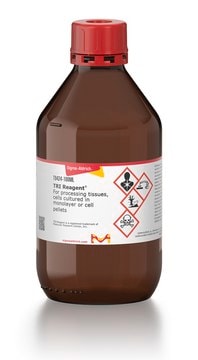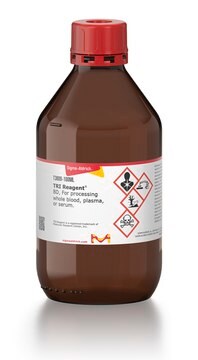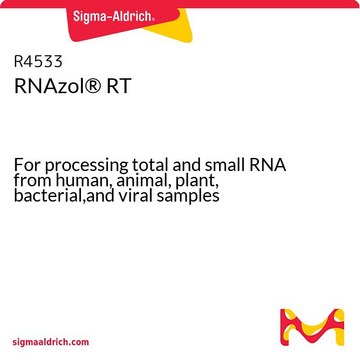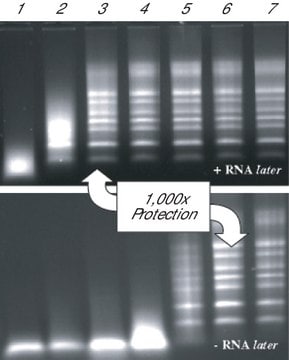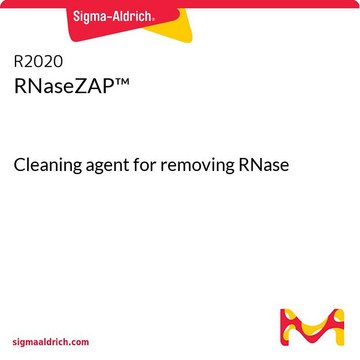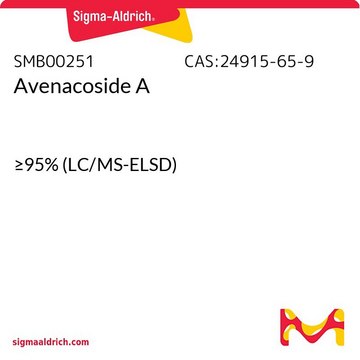93289
TRI Reagent®
for DNA, RNA and protein isolation
Synonym(s):
DNA/RNA/protein extraction reagent, DNA/RNA/protein isolation reagent, DNA/RNA/protein purification reagent, single step RNA extraction reagent, total RNA extraction reagent, TRI Reagent® RNA Isolation Reagent
About This Item
Recommended Products
grade
for DNA, RNA and protein isolation
Quality Level
form
liquid
usage
mL sufficient for 107 cells
mL sufficient for 100 mg tissue
impurities
phenol
Looking for similar products? Visit Product Comparison Guide
General description
Application
Features and Benefits
- Easily scalable RNA isolation
- Works with many sources: human, plant, yeast, bacterial, or viral
- Better yields than traditional guanidine thiocyanate/cesium chloride methods
Legal Information
related product
Signal Word
Danger
Hazard Statements
Precautionary Statements
Hazard Classifications
Acute Tox. 3 Dermal - Acute Tox. 3 Inhalation - Acute Tox. 3 Oral - Aquatic Chronic 2 - Eye Dam. 1 - Muta. 2 - Skin Corr. 1B - STOT RE 2
Target Organs
Nervous system,Kidney,Liver,Skin
Supplementary Hazards
Storage Class Code
6.1A - Combustible acute toxic Cat. 1 and 2 / very toxic hazardous materials
WGK
WGK 2
Flash Point(F)
174.2 °F - closed cup
Flash Point(C)
79 °C - closed cup
Personal Protective Equipment
Choose from one of the most recent versions:
Already Own This Product?
Find documentation for the products that you have recently purchased in the Document Library.
Customers Also Viewed
Articles
The availability of simple methods for purification of DNA and RNA has greatly facilitated the analysis and characterization of the genome and gene expression. There is a demand to isolate DNA and RNA rapidly and conveniently from a variety of cellular sources, including cells and tissues from mammalian, plant and bacterial cultures.
Our team of scientists has experience in all areas of research including Life Science, Material Science, Chemical Synthesis, Chromatography, Analytical and many others.
Contact Technical Service